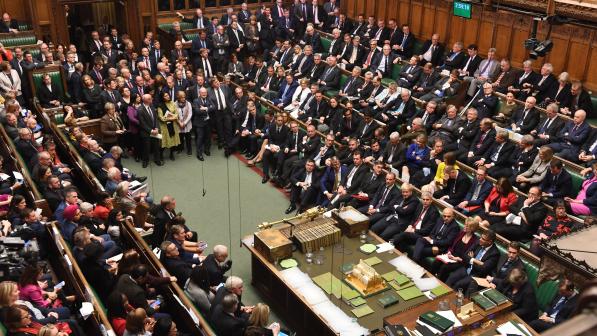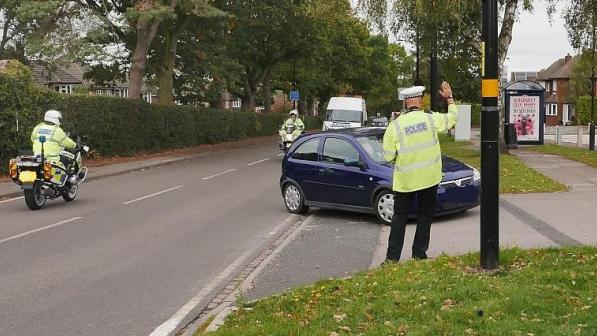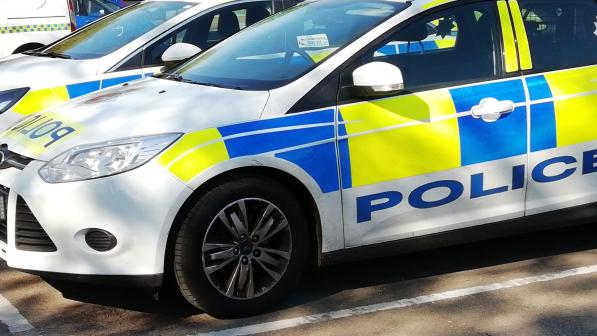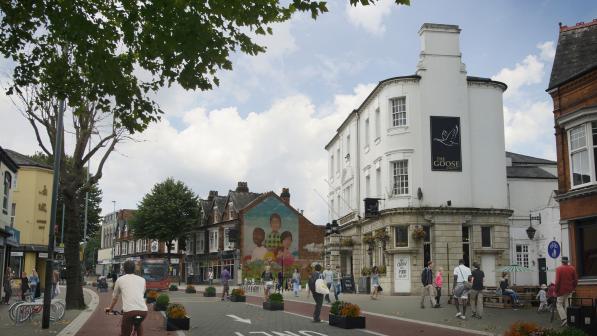Road crime victims deserve the best from the police: help call for change

On May 6, the electorate in England and Wales (except for Manchester and London) will be invited to vote for someone who’ll ‘be the voice of the people and hold the police to account’ in their area. Not only that but, according to the Association of Police and Crime Commissioners, the successful candidates will be ‘responsible for the totality of policing’.
This is an influential role: Police and Crime Commissioners (PCCs) can make roads policing a priority within their police and crime plans, giving clear direction to their Chief Constables. Just imagine the difference it could make if each post-holder made this commitment.
Thanks to Action Vision Zero’s ‘Manifesto for Change’, all road safety campaigners have a ready-made channel to draw this to candidates’ attention.
The manifesto makes five calls on PCCs, two of which I’ve covered in earlier blogs on speeding and on transparency and accountability.
In this blog, I’m looking at Action Vision Zero’s recommendations on how the police could improve their post-crash response. After all, cyclists and pedestrians are disproportionately represented in road casualty statistics and need every police force to get this right.
On top of that, if police investigations into collisions aren’t sufficiently thorough everywhere, and the authorities don’t listen to victims, how are we ever going to learn what's best, achieve Vision Zero or serve the interests of justice?
Action Vision Zero’s manifesto calls on PCCs to:
1. Support and survey crash victims
Some PCCs have commissioned or contributed to support services for people who’ve been affected by road crashes, but victims elsewhere may still be neglected, left in the dark or confused by what’s going on.
In view of this, Action Vision Zero is not only asking Commissioners to provide the necessary resources (caseworkers, helplines and information packs, for example), but also to identify what needs to change by surveying crash victims on how satisfied they are with the police response.
2. Ensure thorough investigations
Victims of a road crash, or people bereaved by one, deserve to know why it happened and who was most likely liable for it. Equally, successful prosecutions for road crime feed on sound evidence.
This depends heavily on the quality of police investigations, on avoiding substandard practice and applying best practice consistently and, indeed, establishing exactly what best practice is.
To be fair, investigations are by no means universally substandard. Take the exemplary work of a police officer investigating a road rage crash involving cyclist John Radford, who’d been struck by a car and subsequently died. The driver denied the charge against him, but the officer found flakes of paint from his car bumper on the bike's spoke cap. This led to a guilty plea to causing death by dangerous driving, and the outcome was a jail sentence.
Victims deserve best practice to be standardised and ubiquitously applied: cyclist Michael Mason and his bereaved family certainly did. And so do the general public.
For the sake of justice and remedial road safety measures, we all need the reassurance that the authorities probe serious road collisions as thoroughly and consistently as they do other kinds of transport crash – rail, air and sea – whose casualty toll is not nearly so heavy.
3. Review ‘No Further Action’ injury investigations
Serious injuries, as defined by the Department for Transport, include conditions that may well cause dire and long-term aftermaths for the victims - fractures, severe cuts and crushings, for instance.
Yet, as Action Vision Zero says: ‘Whilst fatal and life threatening collisions are investigated by specialist forensic investigators, serious injury collisions [..] are not.’
Weak investigations go hand-in-hand with decisions by the police to take no further action and, for seriously injured people, this can seem decidedly unjust.
If there were a system to review ‘no further action’ in serious injury cases, however, the police would be expected to justify them with carefully gathered evidence. In turn, gathering evidence carefully could lead to fewer ‘no further actions’ in the first place.
4. Report the number of road crime victims
When called to a crash scene, officers record the details and what factors they think might have contributed. The data are fed to the DfT who then compile annual road casualty reports.
This, however, is not the same as reporting on how many casualties are eventually deemed to be the victim of road crime and, as far as Action Vision Zero is aware, no police service reports on this.
In consequence, detailed analysis (e.g. on trends, or the number of road crime victims who happen to be cyclists or pedestrians) is left to rely on informed guesswork.
As a slight aside, Cycling UK has its own reasons to be underwhelmed by the police’s data-gathering on road crime. Last year, we asked every force to tell us how many actions they’d taken against drivers who’d been reported to them for driving dangerously around cyclists. Only a few forces got back to us on that, some because the data weren’t easily retrievable.
5. Treat crash victims as victims of crime until the contrary is proven
Perhaps because road crime isn’t always seen as real crime, its victims tend to attract second class treatment in comparison to the victims of many other crimes.
I’ve already touched on Action Vision Zero’s manifesto point about support services and communication between officers and victims, but PCCs could help set the scene for this by committing to treat crash victims as crime victims unless and until the contrary is proven. To err on the side of compassion, in other words.
Want things to change? Take action
If you’ve already taken action and invited your PCC candidates to commit to these and the other points listed on Action Vision Zero’s manifesto, thank you.
If not, there’s still time. Just follow these easy steps.
Note that if you live in Manchester or London, there are no PCC elections because the mayors of those cities fulfil those duties.
And don't forget that you can also make your voice heard in elections in Scotland and Wales, both for a new government; and in England where over 100 councils will be going to the polls too.




